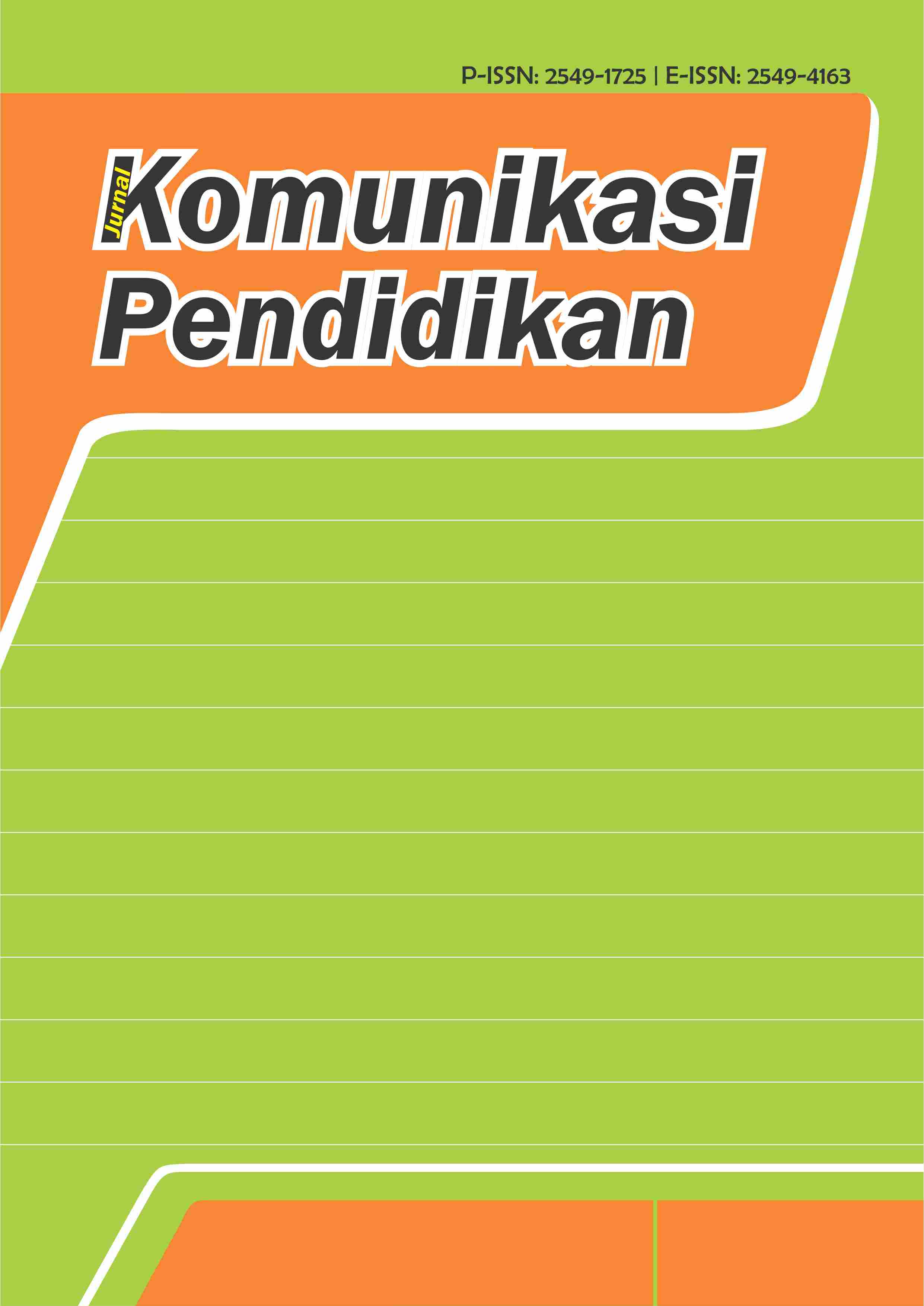Examining the Detrimental Impact of “Kiss Up, Kick Down” Office Culture in Vietnam: A Qualitative Exploration using Grounded Theory
DOI:
https://doi.org/10.32585/jurnalkomdik.v7i2.4372Keywords:
Kiss up, kick down culture, Vietnamese educational institutions, qualitative study, grounded theoryAbstract
This study aimed to explore the “Kiss up, kick down” culture in Vietnamese educational institutions and understand its implications on teachers at different stages of their career: novice, mid-career, and near-end. Using a qualitative approach, 15 participants were interviewed. The thematic analysis of interview data resulted in the identification of fifteen themes. They highlighted a pervasive culture driven by power dynamics and hierarchy, impacting interpersonal relationships, job satisfaction, professional growth, and mental well-being. Additionally, the culture was found to align with societal norms and was seen as a reflection of the collective culture and historical influences in Vietnam. The study underscores the need for systemic change and offers insights that could inform policy and practice aimed at creating healthier and more inclusive academic environments.
Downloads
References
Braun, V., Clarke, V., & Hayfield, N. (2023). Thematic analysis: A reflexive approach. SAGE Publications.
Brees, J. R., Mackey, J., & Martinko, M. J. (2013). An attributional perspective of aggression in organizations. Journal of Managerial Psychology, 28(3), 252-272. https://doi.org/10.1108/02683941311321150
Cinar, A. B., & Bilodeau, S. (2022). Sustainable workplace mental well being for sustainable SMEs: how?. Sustainability, 14(9), 5290. https://doi.org/10.3390/su14095290
Cropanzano, R., Rupp, D. E., Thornton-Lugo, M. A., & Shao, R. (2018). Organizational justice and organizational (Vol. 255). Oxford University Press.
Hitt, M. A., Miller, C. C., Colella, A., & Triana, M. (2017). Organizational behavior. John Wiley & Sons.
Hochwarter, W. A., Ferris, G. R., Laird, M. D., Treadway, D. C., & Coleman Gallagher, V. (2010). Nonlinear politics perceptions—Work outcomes relationships: A three-study, five-sample investigation. Journal of Management, 36(3), 740-763. https://doi.org/10.1177/0149206308324065
Hoel, H., Cooper, C. L., & Einarsen, S. V. (2020). Organizational effects of workplace bullying. In Bullying and harassment in the workplace (pp. 209-234). CRC Press.
Jeong, H. (2014). Archaeology of psychotherapy in Korea: A study of Korean therapeutic work and professional growth. Routledge.
Kim, J. K., LePine, J. A., Zhang, Z., & Baer, M. D. (2022). Sticking out versus fitting in: A social context perspective of ingratiation and its effect on social exchange quality with supervisors and teammates. Journal of Applied Psychology, 107(1), 95–108. https://doi.org/10.1037/apl0000852
Laguda, E. (2021). Toxic Leadership: Managing Its Poisonous Effects on Employees and Organizational Outcomes. In Dhiman, S.K. (eds) The Palgrave Handbook of Workplace Well-Being. Palgrave Macmillan, Cham. https://doi.org/10.1007/978-3-030-30025-8_71
Learmonth, M., & Morrell, K. (2017). Is critical leadership studies ‘critical’?. Leadership, 13(3), 257-271. https://doi.org/10.1177/1742715016649722
Leslie, B., Anderson, C., Bickham, C., Horman, J., Overly, A., Gentry, C., ... & King, J. (2021). Generation Z perceptions of a positive workplace environment. Employee Responsibilities and Rights Journal, 33, 171-187. https://doi.org/10.1007/s10672-021-09366-2
Li, J., Matouschek, N., & Powell, M. (2017). Power dynamics in organizations. American Economic Journal: Microeconomics, 9(1), 217-241.
McHale, S. F. (2008). Print and power: Confucianism, Communism, and Buddhism in the making of modern Vietnam. University of Hawaii Press.
Nguyen, N., Dao, Q. A., Nhan, T. L. A., & Stinglhamber, F. (2021). Organizational dehumanization and emotional labor: A cross-cultural comparison between Vietnam and the United Kingdom. Journal of Cross-Cultural Psychology, 52(1), 43-60. https://doi.org/10.1177/0022022120972183
Nguyen, T. H., & Van Truong, D. (2021). The Office culture at Nghi Son Vocational College Thanh Hoa province of Vietnam. GPH-International Journal of Social Science and Humanities Research, 4(07), 01-11. http://gphjournal.org/index.php/ssh/article/view/453
Oktay, J. S. (2012). Grounded theory. Pocket Guide to Social Work Re.
Quang, T. N. (2021). Corporate cultural characteristics of startups in developed countries and recommendations for Vietnamese small businesses. Can Tho University Journal of Science, 13(1), 71-77. https://doi.org/10.22144/ctu.jen.2021.009
Quynh, L. H. C. (2021). The Influences of Collectivism On Vietnamese Communication Style. International Journal of Research in Engineering, Science and Management, 4(7), 10-14. https://journal.ijresm.com/index.php/ijresm/article/view/930
Spicer, A. (2020). Organizational culture and COVID-19. Journal of Management Studies, 57(8), 1737-1740. https://doi.org/10.1111/joms.12625
Tepper, B. J., Uhl-Bien, M., Kohut, G. F., Rogelberg, S. G., Lockhart, D. E., & Ensley, M. D. (2006). Subordinates' resistance and managers' evaluations of subordinates' performance. Journal of Management, 32(2), 185-209. https://doi.org/10.1177/0149206305277801
Uhl-Bien, M., Piccolo, R. F., & Schermerhorn Jr, J. R. (2020). Organizational behavior. John Wiley & Sons.
van Prooijen, J. W., & Song, M. (2021). The cultural dimension of intergroup conspiracy theories. British Journal of Psychology, 112(2), 455-473. https://doi.org/10.1111/bjop.12471
West, T. (2022). Jerks at Work: Toxic coworkers and what to do about them. Penguin.
Downloads
Published
How to Cite
Issue
Section
License
Copyright (c) 2023 Thuy Trut Pham, Le Thanh Thao, Thuy Thi Tran

This work is licensed under a Creative Commons Attribution-ShareAlike 4.0 International License.
Authors who publish with the Jurnal Komunikasi Pendidikan agree to the following terms:
- Authors retain copyright and grant the journal the right of first publication with the work simultaneously licensed under a Creative Commons Attribution License (CC BY-SA 4.0) that allows others to share the work with an acknowledgment of the work's authorship and initial publication in this journal.
- Authors are able to enter into separate, additional contractual arrangements for the non-exclusive distribution of the journal's published version of the work (e.g., post it to an institutional repository or publish it in a book), with an acknowledgment of its initial publication in this journal.
- Authors are permitted and encouraged to post their work online (e.g., in institutional repositories or on their website) prior to and during the submission process, as it can lead to productive exchanges, as well as earlier and greater citation of published work.





